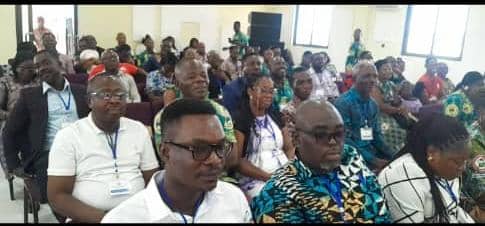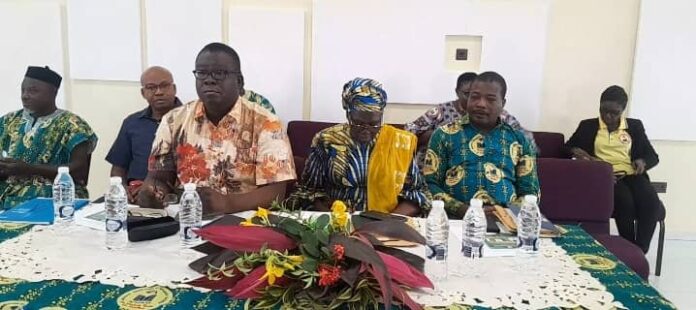The Greater Accra Regional Director of Education, Hajia Katumi Natogmah Attah, has called for national unity in upholding discipline within Ghanaian schools, describing it as vital to both academic success and national development.
Speaking to Adomnews at the 5th Quadrennial Delegates Conference of the National Association of Graduate Teachers (NAGRAT) in Accra, Hajia Katumi stressed that the fight against indiscipline cannot be left to educators alone.
“Discipline in schools is not just an educational issue; it is a national responsibility. Every Ghanaian must rise and speak boldly against acts of indiscipline,” she said.
She delivered her remarks on behalf of the Greater Accra Regional Minister and the Director-General of the Ghana Education Service (GES), highlighting the role of all stakeholders in maintaining order and safety in educational institutions.
This year’s conference was held under the theme: “Ensuring Teacher Safety and Positive Discipline in Ghanaian Educational Institutions: The Role of Stakeholders.” The gathering also provided a platform to elect new regional leadership and address challenges confronting teachers.

New NAGRAT Regional Chairman Vows to Champion Teacher Welfare
Henry Teitey Tetteh-Afi, Esq., was re-elected as the Greater Accra Regional Chairman of NAGRAT. Speaking after his victory, he reaffirmed his commitment to the welfare of teachers across the region.
“As Chairman, my top priority will be the welfare of our hardworking teachers. We will ensure your voices are heard, and your needs are addressed,” he assured.
He further urged parents to play an active role in instilling discipline in their children at home to complement the work of teachers.
“Teachers cannot do it alone. We need parents to step up and support us by teaching discipline at home. That’s the only way we can raise responsible future leaders,” he added.
The conference concluded with a renewed commitment from participants to promote discipline, ensure teacher safety, and strengthen partnerships among stakeholders in the education sector.
Source: Kodwo Mensah Aboroampa



